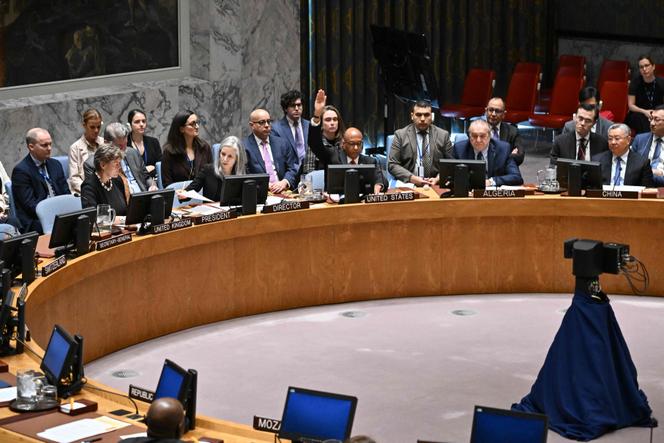


The US once again vetoed a new draft UN resolution on Gaza on Wednesday, November 20, confirming its unconditional support for its Israeli ally, but also its entrenched position on the issue. This came after more than 13 months of war, and two months before the arrival in power of a Trump administration whose Middle East policy is marked by unconditional support for Israel.
The text prepared by the 10 elected members of the Council demanded "an immediate, unconditional and permanent ceasefire to be respected by all parties; and further reiterates its demand for the immediate and unconditional release of all hostages."
"We could not support an unconditional ceasefire that failed to release the hostages," justified Robert Wood, deputy US ambassador to the UN, believing that the Council would have sent Hamas "the dangerous message that there is no need to come back to the negotiating table."
As France's ambassador, Nicolas de Rivière, pointed out, "the draft resolution rejected today was also calling clearly and firmly for an immediate and unconditional release of all hostages." With France still counting two nationals among the Hamas hostages being held in Gaza, he deplored "the failure of the Security Council."
"The US decision to exercise its veto for the fourth time emboldens Israel to continue its crimes against innocent civilians in Palestine and Lebanon," reacted the Palestinian Authority in a statement.
The American obstinacy exasperated all the Council's diplomats. "This war has represented everything the UN Charter stands against," blasted the deputy Slovenian ambassador, Ondina Blokar Drobic. "We regret the veto was cast."
Faced with the stalemate, the Slovenian head of government, Robert Golub, requested in September that his diplomats begin a new ceasefire appeal negotiation from New York. The 10 elected members of the Council supported the project. "American negotiators were constantly putting the issue of hostages, the issue of Hamas at the forefront," said one of the diplomats involved. "But after the death of almost 45,000 Palestinians, it's very hard to focus purely on Hamas. And the question is about the other side: What happens with all these Palestinians who are dying in tents every day?"
Washington cannot consider an "unconditional" ceasefire, believing that it can only be deployed in stages, and conditional on the release of the hostages – as called for in the resolution passed in May on the initiative of the US.
You have 41.92% of this article left to read. The rest is for subscribers only.
